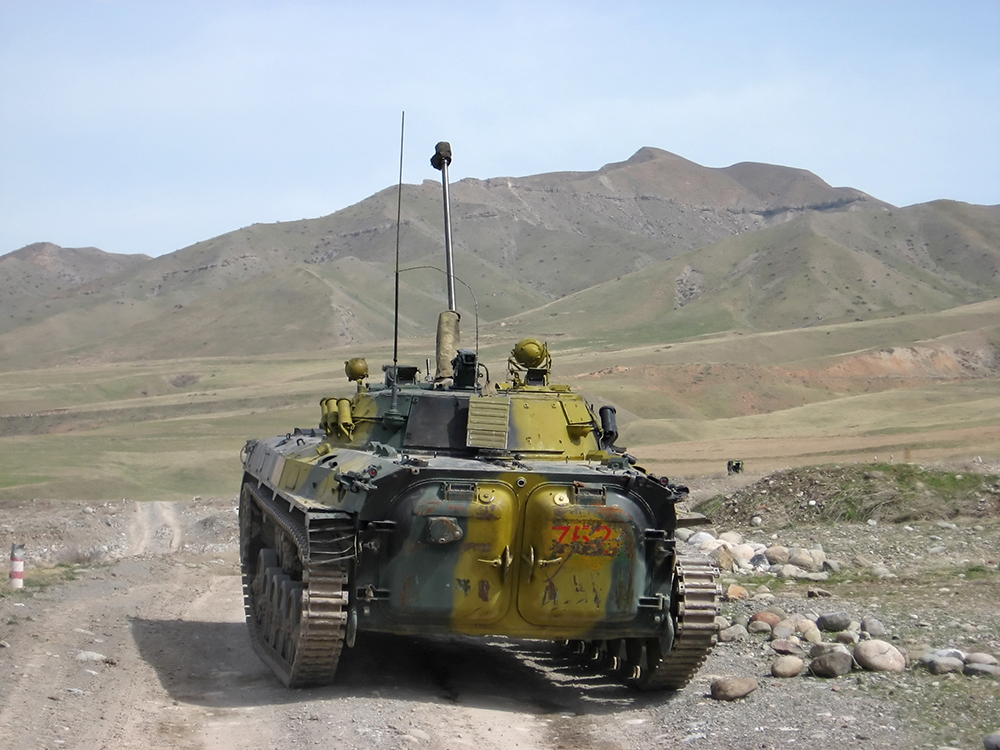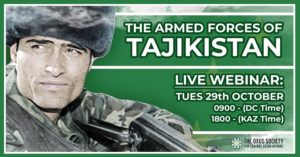Central Asia in Russia’s Afghan Strategy
On October 15, the foreign ministers of Russia and the Central Asian republics issued a statement emphasizing the need for enhanced security cooperation. Particular attention was drawn to issues of terrorism emanating from Afghanistan. As the U.S. prepares to withdraw from the country, Russian policy emphasizes the need to advance the Afghan peace process with “inclusive talks on a political settlement among the Afghan people.”
Moscow’s main goal is to prevent the reemergence of a strong U.S. influence in the region. Despite the fact that President Putin stated that the continued presence of the U.S. military in Afghanistan is beneficial to their common security, adding that Russia perceives American anti-terrorist activities in Afghanistan positively, Russia nevertheless considers U.S. military bases there to be a threat to the interests of Central Asia.
The statement is the latest development in centuries of joint Russian-Central Asian policy toward their Afghan neighbor. During the Great Game, when the Russian and British empires vied for influence in Eurasia, Afghanistan was seen as a pivotal player. Together with Persia and Tibet, Afghanistan was one of the frontline buffer states between the two rivals. During the Cold War, cultural links between Soviet Tajiks and Uzbeks with their neighbors in Afghanistan, forming a northern sphere in the country that was considered by the Soviet leadership to be a zone of Soviet influence.
Moscow’s involvement in the country would decline with the withdrawal of Soviet troops after a decade of occupation and a failure to influence the country’s political trajectory. Nevertheless, Russia would remain active in Afghan affairs throughout the 1990s, sponsoring the Northern Alliance throughout its prolonged civil war to prevent the Taliban advancing on the Central Asian border.
Despite a shared hostility to the Taliban, U.S. and Russian relations have been tense throughout the War on Terror. For Russia, U.S. military bases in Central Asia have been seen as a threat, and Moscow has sought to pressure its allies to close down facilities linked to Washington. One of Russia’s official declared interests in Afghanistan is to ensure the security of the Afghan-Central Asian border in order to prevent the destabilization of its allies in the Collective security Treaty Organization and the Eurasian Economic Union.
Though terror has been a real threat in the past, it has become increasingly exaggerated in recent years. There are also suspicions that the drug trade, another threat thought to emanate from Afghanistan, has long since shifted its manufacturing across the border into Central Asia. The quantity of opioids from the region that reaches Russian markets remains relatively low, however.
Despite centuries of engagement, Central Asian elites try to balance against the influence of their neighbor to the north. For one, Russia’s military presence in Central Asia remains limited. While Russia remains active in patrolling the Tajik border, Uzbekistan and Turkmenistan have jealously guarded their sovereignty from Russian encroachment. However, there is information that Russia provides military advisors, in some cases even small troops for Turkmen border guards.
Moscow does retain diplomatic influence through regional organisations such as the CSTO and the Shanghai Cooperation Organization (SCO) however. Russia has made use of its diplomatic clout to engage Central Asia in peace formats that engage Afghanistan and ensure Russian interests are met.
As in other other conflicts, Moscow believes its great power status means it should have a seat at the table for any Afghan peace negotiations. Russia is displeased by initiatives that exclude it. The Russian President’s representative on the Afghan negotiations Zamir Kabulov has favored the “Moscow format,” an effort to resolve the conflict that includes the Taliban. Russia was the first to include the Taliban in negotiations in November 2018. But thus far these talks have come to no avail.
Renewed attempts by the U.S. to engage the region are viewed by Moscow with suspicion. In 2020, for example, Secretary Pompeo’s visit to Central Asia was understood by Moscow as an attempt to tear the republics away from Russia and China in order to connect them with U.S.-sponsored regional security and energy projects linked to Afghanistan. By engaging with Afghanistan, Russia hopes to regain trust in Central Asia, balance against Chinese influence, and form an anti-ISIS coalition to forestall the threat of ISIS fighters returning from Syria.
The core goal for Russia may well prove to be preventing the re-emergence of American influence in Eurasia. ”when we talk about the situation in Central Asia, we mean the threats emanating from Afghanistan: terrorism, drug trafficking and instability” Russian Foreign Minister Serge Lavrov recently said. “U.S. actions in Afghanistan harm the countries of Central Asia [and destabilize the region].”




